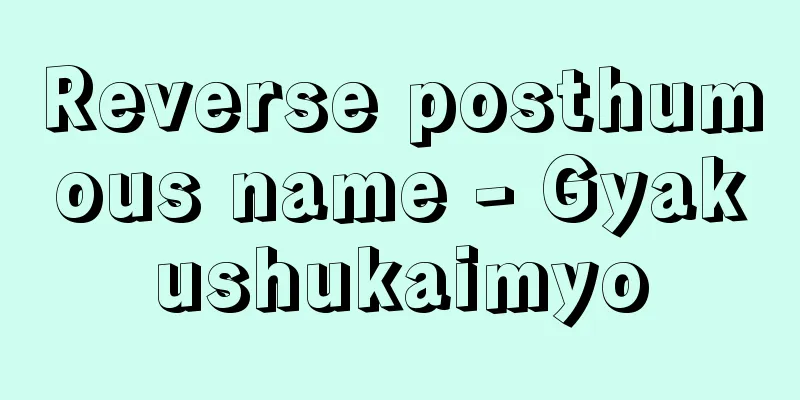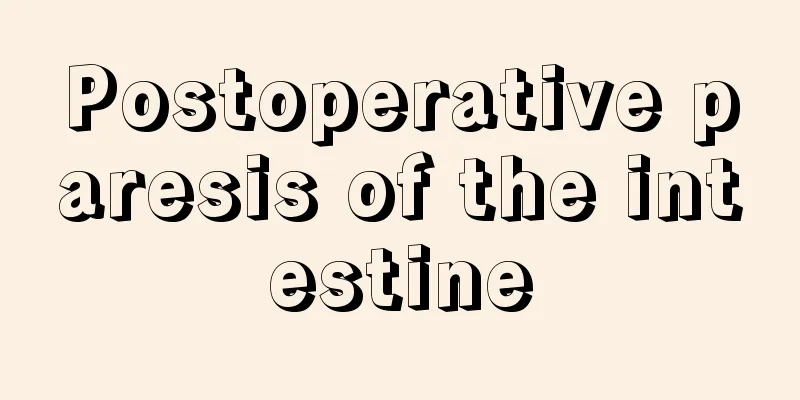Reverse posthumous name - Gyakushukaimyo

|
... As you can see, a posthumous name should originally have been given to someone who converted to Buddhism while still alive and received the precepts of an upasaku, upasi, novice, or nun. This is called a "gyakushuyu" posthumous name, and what represents this is called a layperson's title such as koji, daishi, shinshi, or shinjo. This means that the person received the precepts and practiced Buddhism while still alive. ... *Some of the terminology explanations that refer to "reverse posthumous name" are listed below. Source | Heibonsha World Encyclopedia 2nd Edition | Information |
|
… これでわかるように,戒名は本来は生前に仏教に帰依して優婆塞(うばそく),優婆夷(うばい),または沙弥,沙弥尼の戒律を受けたとき付けるべきものである。これを逆修(ぎやくしゆう)戒名というが,これを表すものが居士(こじ),大姉(だいし),信士,信女などの位号と呼ぶものである。これは生前に受戒入道して仏道修行をしたという意味である。… ※「逆修戒名」について言及している用語解説の一部を掲載しています。 出典|株式会社平凡社世界大百科事典 第2版について | 情報 |
>>: Reverse expropriation - Gyakushuyo
Recommend
Shogi - shogi
It is an indoor game in which two players (player...
Pygmalion
Characters in Greek legend. (1) King of Tyre. Kill...
SLE - System Engineering Lease
Systemic lupus erythematosus Source: About Shogaku...
Chelonibia patula (English spelling) Chelonibia patula
…[Shigeo Gamou]. … *Some of the terminology that ...
Camelus
...A large herbivorous animal with a hump on its ...
Acala - Fudo Myoo
Another name for the Hindu god Shiva, Acalanata, ...
Ajase complex
A psychoanalytic concept of the unconscious mind p...
Mount Jinhua (China)
...After that, the name was changed to Jinhua Cou...
Bottle - Heishi
In ancient times, it was read as "heiji"...
Auto Route - Auto Route
...Also, the Shuto Expressway and the Hanshin Exp...
Peninsula - Hanto (English spelling)
A long part of land that juts out into the sea or...
Tephrochronology
Also known as volcanic ash chronology. A geologica...
Ichiro Oya
Actor. His real name is the same. Born in Asakusa...
National Land Agency
A national administrative agency established in 1...
Kanzo Uchimura's disrespect incident
This was the first and most famous case of disresp...









